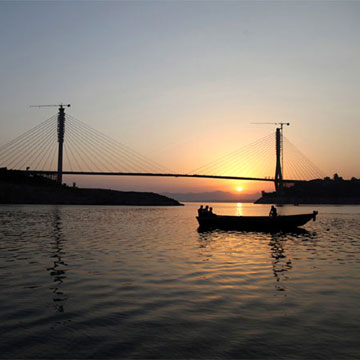 Srinagar:
Srinagar: Road accidents are a bigger killer than militancy in Jammu and Kashmir, according to official records that show deaths due to "rash or negligent driving" were five times more than the toll from terrorism, at least in the last two years.
Jammu and Kashmir Police's annual crime report, released recently, said nearly 1,000 people were killed and some 8,400 wounded in some 6,000 road accidents in the militancy-ravaged state in 2015.
In comparison, 176 people died in some 291 terrorist incidents last year. The dead included 28 civilians, 45 security force personnel and 103 foreign and local militants.
The scene was not different in 2014. As many as 1,055 people were killed and more than 8,000 injured in nearly 5,900 road accidents.
On the other hand, militancy-related violence in 2014 claimed 187 lives. These included 37 civilians, 46 security personnel, and 104 militants. Some 75 people were also injured or maimed in more than 300 terrorist incidents that year.
The first two months of this year have been equally deadlier. According to traffic police records, 116 people were killed and nearly 1,100 injured in 862 road accidents.
Traffic police chief in Kashmir Shafqat Ali Watali said "rash and negligent driving" was surely one of the reasons for "huge" road fatalities. But he also put the blame on "bad roads" which he said were also "one of the main" contributing factors.
He said a better traffic management system was only possible for his department when people get "better and wider roads to drive on".
In Jammu and Kashmir, successive governments have laid ambitious plans to better road connectivity. However, old timers say they have seen same roads with the same dimensions in the last 50 years, despite an ever-increasing traffic volume.
The state, according to official records, has registered more than 500,000 new vehicles in the last five years, increasing the total vehicle population to more than 1.2 million. But the road building plans have not been able to keep pace with the increasing number of vehicles over the years.
Shailendra Mishra, a senior police officer, who served the traffic department until recently, said better management and strict enforcement of rules would "surely help in curbing accidents".
But another factor increasing road fatalities was that the state didn't have trauma centres for an emergency care to prevent such deaths, he said.
"The absence of trauma centres and critical care ambulances on highways and major roads lead to delays and contribute to fatalities."
But activists are of the view that till the state develops its infrastructure and builds new and wider roads, police cannot shrug off its responsibility in curbing such deaths.
"Police priority, over the years, has been to battle the unrest and conflict," lawyer-activist Sajad Sheikh told this correspondent.
Javeed Kakroo, another activist, questioned the government's "sincerity or the lack of it". For example, he said, Srinagar city is already battling a narrow road crisis, and pavement encroachment by shopkeepers further complicates the problem. "Why not clear that first till we build new and wider roads."
# Javaid Trali is a Srinagar-based freelance journalist. He can be contacted at atharjavaid55@gmail.com
 Srinagar: Road accidents are a bigger killer than militancy in Jammu and Kashmir, according to official records that show deaths due to "rash or negligent driving" were five times more than the toll from terrorism, at least in the last two years.
Srinagar: Road accidents are a bigger killer than militancy in Jammu and Kashmir, according to official records that show deaths due to "rash or negligent driving" were five times more than the toll from terrorism, at least in the last two years. 